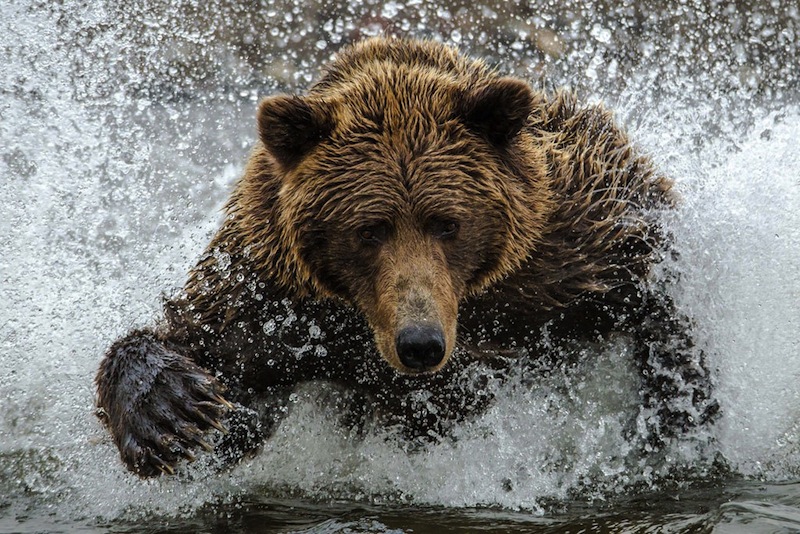Proximity
Scott Robinson
 I leaned in, only inches from certain death. A thin slab of glass was all that separated me from nearly five hundred pounds of claws and teeth. It was a rush standing there, stared down by a creature of immense power. Even with the many safety precautions that zoos maintain, it’s hard to avoid a visceral apprehension when confronted with an animal that could easily take my life. Though I understood well the security of my position, my recognition of and respect for this potential remained.
I leaned in, only inches from certain death. A thin slab of glass was all that separated me from nearly five hundred pounds of claws and teeth. It was a rush standing there, stared down by a creature of immense power. Even with the many safety precautions that zoos maintain, it’s hard to avoid a visceral apprehension when confronted with an animal that could easily take my life. Though I understood well the security of my position, my recognition of and respect for this potential remained.
When you think of the word “awe”, what does it bring to mind? The situations that come to my mind almost seem disparate. Viewing lions at a zoo, getting lost in the wonder of the night sky at 13,000 feet, peering through the crowd at a tiny portrait of a faintly-smiling lady in the Louvre. Awe seems a malleable notion, here hinting at grandeur, there delving into mystery. But certainly it stirs something in us. It can give a disquieting glimpse of life much grander and more fantastic than we could know, or a world beyond our control.
Perhaps this unease is what leads us to attempt to limit the experience of awe in our daily lives. We direct industry and technology toward reducing anomalies, preventing chaos. We channel our experience of awe into culturally acceptable forms - particularly in entertainment. We are ever more able to engage in “armchair awe”, carefully positioning ourselves to disengage at a moment’s notice should the experience start to get overwhelming.
With this pattern comes an increasing resilience to awe. The underlying “threat”, the power that grounds our awe, tends to deteriorate as we become more and more removed from it. Any impact an awe-filled experience might have is eroded.
The effects of this awe-resilience can be seen in relation to modern spirituality. The notion of worship has been widely blighted by a lack of awe. Dulled by the insular illusion that we are masters of our own fate, we have little interest in dwelling on fearful things. This insidious pull leads us to focus on God’s love so exclusively that He turns into the spiritual equivalent of a stuffed animal, meant only to be hugged.
That day at the zoo, I was awestruck by my position. The proximity to such ferocity grounded my gratitude for the protective glass, the barrier apart from which my life was forfeit. It is the sort of tension displayed in the final verses of Hebrews 12, where the author juxtaposes grateful worship with reverent awe. Do we take for granted our position behind the barrier, or do we recognize that beyond the unshakeable kingdom lies a God of consuming fire?